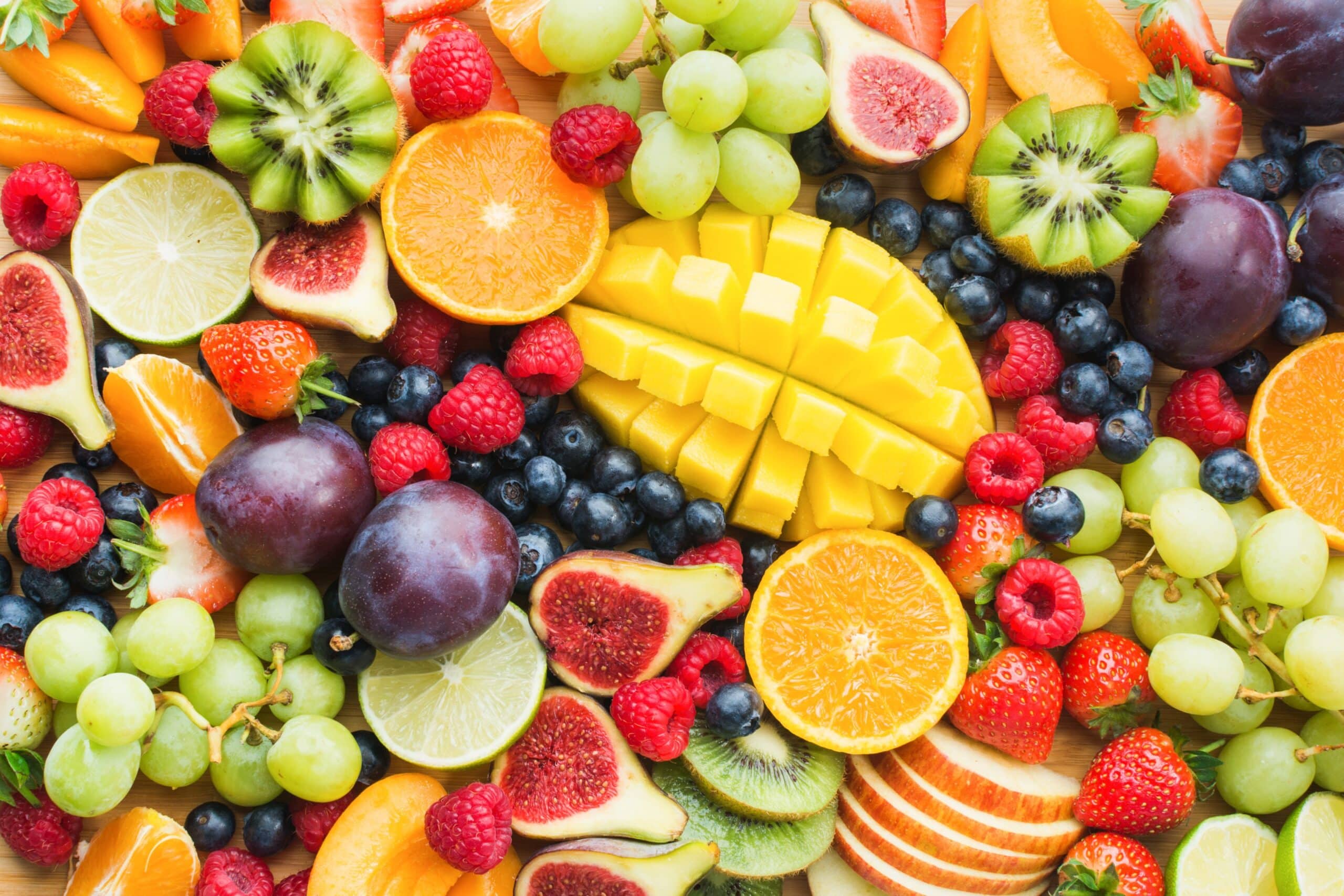In general, people should be eating more fruit as according to a CDC report only 12% of adults consume enough fruit on a daily basis. Rather than eating junk food as a snack, why not reach for a piece of fruit for that sweet and tasty yet nutritious treat that carries with it health benefits.
An apple a day might help to keep a few pounds at bay, the trick is to keep the peel in to include the compounds ursolic acid. Research published in Obesity Reviews found that this compound is linked to an increase in thermogenesis, increased skeletal mass and improved physical fitness. Another study published in Appetite on fiber and calorie content found that those in the fruit group ate significantly fewer calories per day and they lost more weight.
While all berries are a great option blackberries and raspberries are among the best choices for fiber, according to the USDA, with one cup of fresh blackberries containing 60 calories and 7.5 gram of fiber and one cup of raspberries containing 65 calories and 8 grams of fiber to help you to stay satisfied for longer. Fruits are typically packed full of phytochemicals, blackberries in particular have a high phenolic content. A report published in Nutrients suggests that certain phenolics in fruit are known anti-obesity compounds with blackberries and wild blueberries containing some of the highest levels of phenolic phytochemical content.
According to the USDA, more than 90% of watermelon is water which will help you to meet your fluid needs for the day while helping you to feel full to help you manage your weight. A study published in the journal Nutrients put this to the test among overweight and obese adults, finding showed that the watermelon snack group lost weight, decreased their waistlines, and had a greater satiety response than those in the cookie snack group.
Those with a strong sweet tooth may want to consider reaching for mangoes as a study published in the Journal of Nutrition & Food Sciences found that those who ate mango typically consume less sugar and weigh less, noting that mango eaters also have a higher healthy eating score which included a higher intake of fiber, vitamins and minerals. Additionally, another study published in Food & Function found that mango may inhibit fatty tissue formation. One cup of mango contains 3 grams of fiber and 100 calories, plus it will help to keep you hydrated as 84% of the fruit is water.
A report published in the Nutrition Journal concluded that those who consume avocado may be better off, finding that those who eat them regularly tend to weigh significantly less and have smaller waistlines, eat more vegetables, fruit, fiber, vitamins, minerals, and intake fewer added sugars than those who don’t. A separate report published in Nutrients studying the effects of avocado in place of carbs on hunger hormones and satiety at breakfast found that even though subjects ate the same amount of calories the addition of avocado led to greater suppression of hunger and greater reported satisfaction post-meal.
Lastly, grapefruit in general can be part of a healthy balanced diet to help you to meet your weight loss goals. According to the USDA, 90% of this fruit is water making it a low energy-dense food. A report published in Nutrition & Metabolism comparing the effects of grapefruit, grapefruit juice or water consumption before a meal found no difference between the three options and all scenarios led to weight loss and decreased energy intake.




